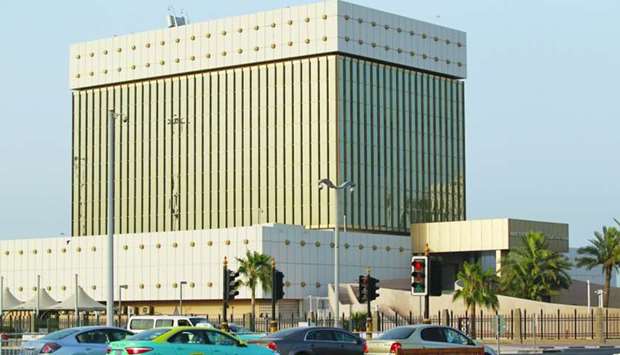The Qatar Central Bank (QCB) is striving to protect and promote the financial sector in Qatar, making it not only capable of facing the challenges but turning them into potential growth opportunities.
The QCB, on the occasion of the National Day 2018, presented a summary of its achievements during the year, including the establishment of Supreme Emergency Committee headed by the governor, deputy governor and executives of the different sectors of the bank.
The committee monitors the day-to-day work of financial institutions in the country, addressing emergency matters and removing all obstacles to the flow of work.
The QCB also launched the second strategic plan for the financial sector (2017-2022), which was prepared in co-ordination with the three regulatory bodies: The QCB, the Qatar Financial Markets Authority, and the Qatar Financial Centre Regulatory Authority.
The plan is currently being implemented in line with the National Development Strategy and Qatar National Vision 2030.
The QCB has also issued a number of instructions and resolutions to the financial sector and to banks and insurance companies to regulate the work and define the responsibilities and obligations.
The central bank issued instructions to all financial institutions to comply with all regulations to tackle money laundering and terrorism financing, in particular the implementation of international resolutions and United Nations sanctions on individuals, or entities related to financing terrorism.
The QCB also updated the manual for the work of Anti-Money Laundering/Combating the Financing of Terrorism (AML/CFT) department and developed the AML/CFT system in preparation for the evaluation of the Financial Action Task Force (FATF) in 2019.
The QCB has been co-ordinating with the Ministry of Finance, Qatar Petroleum and the Qatar Investment Authority on the policy of financing state projects.
It also co-ordinated with the Planning and Statistics Authority regarding the implementation of the annual and quarterly foreign investment surveys and the institutional modernisation strategy.
The QCB has prepared a number of studies and reports on the lessons learned from the blockade, its impact on macroeconomic indicators, the banking sector, remittances of workers abroad and other subjects.
These reports and studies were submitted to the Amiri Diwan and the Cabinet.
The bank also carried out the necessary review of policies issued by international bodies such as the Bank for International Settlements (BIS), the Financial Stability Board (FBS), the International Monetary Fund (IMF), and the World Bank.
Experts from the QCB also participated in workshops and panel discussion in various economic, financial and educational fields.
Other projects by the QCB included the establishments of an electronic platform for receiving and sending information and linking the financial sector through a database of information management to reduce threats to cybersecurity in co-operation with Qatar's National Center for Information Security (Q-CERT).
Additionally, the QCB is preparing for the completion of the first phase of project (ERP) on human resources management in the bank in accordance with the best practices in this area.
The QCB is working on staff development through training programmes to meet international standards; it is also following on memorandums of understanding signed with a number of central banks around the world in order to exchange information and experiences.
The QCB will be working on the development and modernisation of information technology and cybersecurity systems, and the adoption of a number of legislations regulating the payment and settlement systems to further regulate this sector in order to attract foreign investment.

